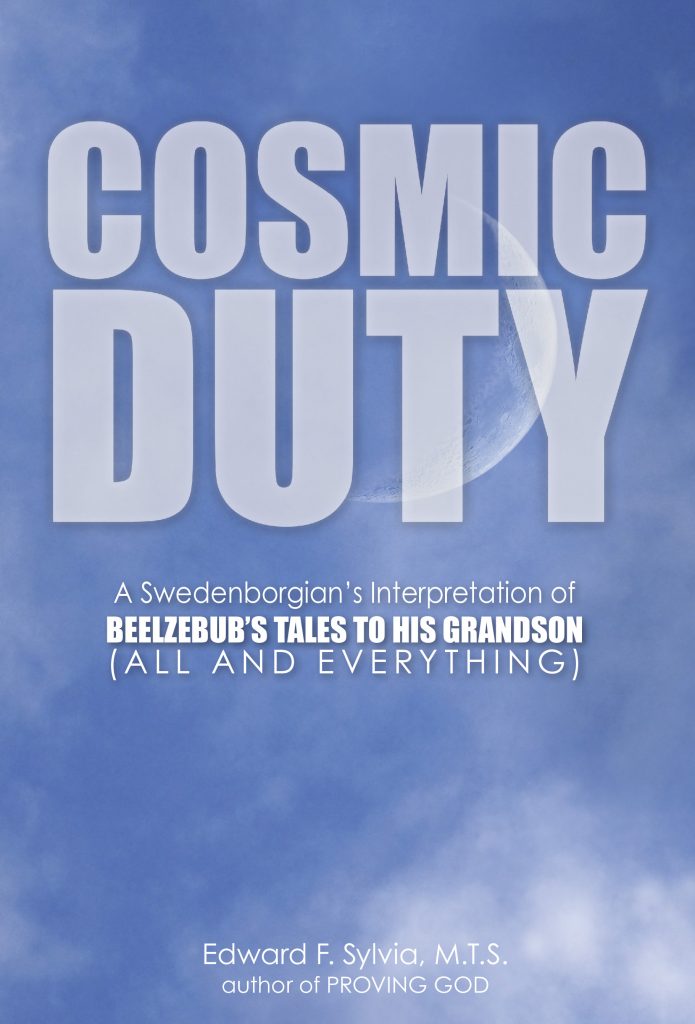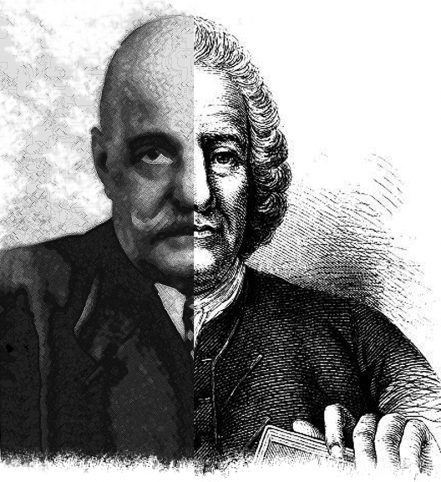WHAT WENT WRONG WITH HUMANKIND—AND HOW CAN WE FIX THINGS?

George Gurdjieff’s epic book Beelzebub’s tales to his Grandson (All and Everything) is easily the most important work of the twentieth century.
It addresses the inner history of humankind. Unfortunately, it is a book that goes over most people’s heads—both in terms of our reasoning ability and our heart’s desires. All, because it is not a terrestrial approach. Instead, it challenges us on a cosmic level.
Thankfully, another great individual (of the eighteenth century) gave us the key to elevating our minds enough to derive a helpful interpretation of our inner history—Emmanuel Swedenborg. The problem is that this news, when properly understood, is very unflattering in that the basic beliefs we maintain about ourselves, and reality, are all wrong.
In terms of Revelation and a new dispensation from Heaven, God’s Word and this book express similar principles and provide an abundance of challenging food for thought on topics including the universe, civilization, religion, war, social justice, hypnotism, art, electricity, and what happens to us after we die.
AMAZON FIVE-STAR REVIEW *****
Beautiful accompaniment to Gurdjieff’s “Beelzebub’s Tales”!
“Very useful in unraveling the dense esoteric style of Gurdjieff and much fun to read as well. In addition, I have learned much about Swedenborg in the process. The author has a great sense of humor and takes apart the often daunting concepts Gurdjieff presents. Erudite comparing and contrasting. Greatly simplifies principles. Highly recommended for anyone wanting to study ‘Beelzebub’s Tales’ and learning Swedenborg in the process! Thanks, Mr. Sylvia.”
– Dr. Max Woodside
THIS IS A TRANSFORMATIVE BOOK
A Swedenborgian’s interpretation of BEELZEBUB’S TALES TO HIS GRANDSON (ALL AND EVERYTHING)
Over a lifetime of study and several years of intense writing and rewriting, author Edward F. Sylvia has brought the all-encompassing work of George Ivanovitch Gurdjieff and Emanuel Swedenborg together in one place—allowing us to compare their thinking, side-by-side, on many of the issues that the human race has grappled with since the beginning of time. It is his sincere hope that these startling ideas might help you make sense of world events and everyday modern life so you can be informed enough about mankind’s true condition to objectively chart your own path toward eternity.

The life’s work of these remarkable men—Gurdjieff, a passionate spiritual seeker and teacher from western Asia and Swedenborg, a brilliant European scientist who lived centuries earlier—meshes quite beautifully in many ways. Especially concerning conscience.
COSMIC DUTY is not an easy read. It requires true effort. Like Gurdjieff’s original allegory, (which carries the subtitle An Objectively Impartial Criticism of the Life of Man) you will need to read this book more than once to fully grasp what’s going on. It’s a challenging chapter-by-chapter examination of the early twentieth-century mystic, philosopher, composer and spiritual teacher’s masterwork, All and Everything: Beelzebub’s Tales to his Grandson. The author includes many of Gurdjieff’s original large (and annoying) words for effect, but Gurdjieff’s startling revelations are clarified here through the lens of ideas from the great eighteenth-century scientist, philosopher, theologian and mystic, Emanuel Swedenborg.
While these two men never met during their time on this planet, the author “met” them both on the same day while taking a college course. Almost immediately, he saw intriguing connections between the concepts each man presented to the world as Truth. The quest to truly understand the scope of what these visionaries shared with the world has shaped the author’s own personal journey for over forty years. With this book, he makes it accessible for the rest of us.
The connections made here in a most unique study of their divergent, yet complementary philosophies, present us with an enlightnening and somewhat disturbing examination of who we are, why we are the way we are—and how we can work to be better.
